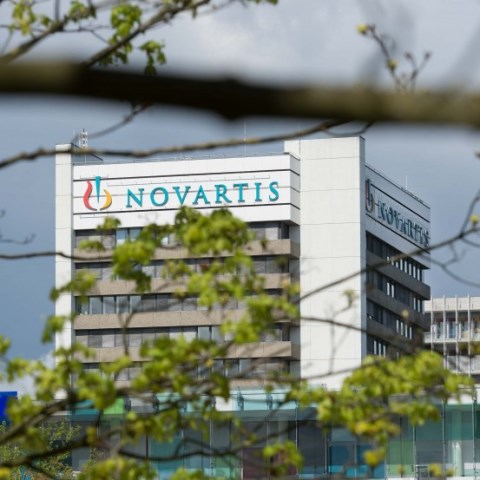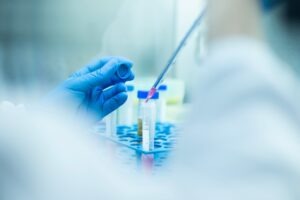Novartis announced that it entered into an exclusive worldwide license and collaboration agreement with Mesoblast to develop, commercialize and manufacture remestemcel-L for the treatment of acute respiratory distress syndrome (ARDS), including that associated with COVID-19.

Novartis has secured exclusive rights for potential acute respiratory distress syndrome cell therapy. (Credit: Novartis AG)
Subscribe to our email newsletter
ARDS is an area of significant unmet need, with an approximate 40% mortality rate with current standard of care, which includes prolonged ICU treatment and mechanical ventilation.1,2 As the potential first ARDS therapy, remestemcel-L will use mesenchymal stromal cells (MSCs), a cell-based platform technology, to treat this deadly condition and improve outcomes. Remestemcel-L is currently being studied in COVID-19-related ARDS in an ongoing 300-patient Phase III study.3 Novartis intends to initiate a Phase III study in non-COVID-19-related ARDS after the anticipated closing of the license agreement and successful completion and outcome of the current study.
“We believe that Novartis is uniquely placed to advance this important potential new therapy,” said John Tsai, M.D., Head of Global Drug Development and Chief Medical Officer for Novartis. “Novartis is committed to, and has demonstrated success with, cell-based therapies and transforming care for a spectrum of respiratory diseases. This makes remestemcel-L an important addition to our pipeline. It has the potential to be the first treatment for the most critically ill ARDS patients, and it provides us with an opportunity to apply years of specialized experience directly to the work of saving lives.”
The demonstrated ability of Novartis to rapidly move from clinical to commercial scale with cell-based therapies will play a role in the successful development and potential commercialization of remestemcel-L, as will the nearly two decades of experience Novartis has in delivering first-in-class products that address areas of unmet respiratory need.
In March, an open label compassionate use program was conducted, which included 12 patients with COVID-19-related ARDS, who were being supported with mechanical ventilation. Remestemcel-L treatment was associated with an 83% survival rate.
Based on those results, remestemcel-L is being studied in this population in an ongoing 300-patient Phase III study, conducted in collaboration with the Cardiothoracic Surgical Network, which is anticipated to be completed in early 2021.3 After the anticipated closing of the license agreement and successful completion and outcome of this ongoing study, Novartis and Mesoblast will work together to develop appropriate critical quality attributes that meet U.S. Food and Drug Administration requirements for remestemcel-L in advance of initiation of the Phase III study in non-COVID-19-related ARDS.
Under the license agreement, Novartis will acquire the exclusive worldwide rights to develop, commercialize and manufacture remestemcel-L for ARDS, and will obtain access to an innovative cell-therapy platform with a range of potential applications in severe respiratory conditions and beyond. Novartis will make a $25 million upfront payment and invest $25 million in Mesoblast equity with additional payments and royalties due on achievement of agreed development, regulatory and commercial milestones. In addition, Novartis will provide certain support to enable commercial manufacturing scale-up. Novartis has the option, if exercised, to distribute remestemcel-L for graft versus host disease (GVHD) (outside Japan). Both parties have rights to co-fund development and commercialization for other non-respiratory indications. The closing of the license agreement is subject to the expiration or termination of the waiting period under the Hart-Scott-Rodino Antitrust Improvements Act and certain other conditions.
Remestemcel-L, is an investigational therapy comprising of culture-expanded mesenchymal stromal cells derived from the bone marrow of an unrelated donor.
Remestemcel-L is thought to have immunomodulatory properties to counteract the cytokine storms that are implicated in various inflammatory conditions by down-regulating the production of pro-inflammatory cytokines, increasing production of anti-inflammatory cytokines, and enabling recruitment of naturally occurring anti-inflammatory cells to involved tissues.5 In the Phase III study in COVID-19-related ARDS, remestemcel-L is administered as two infusions of 2×106 MSC/kg given three to four days apart.3 The administration of remestemcel-L for the treatment of all-cause ARDS could be the subject of further exploration.
Source: Company Press Release
 Advertise With UsAdvertise on our extensive network of industry websites and newsletters.
Advertise With UsAdvertise on our extensive network of industry websites and newsletters.
 Get the PBR newsletterSign up to our free email to get all the latest PBR
news.
Get the PBR newsletterSign up to our free email to get all the latest PBR
news.

